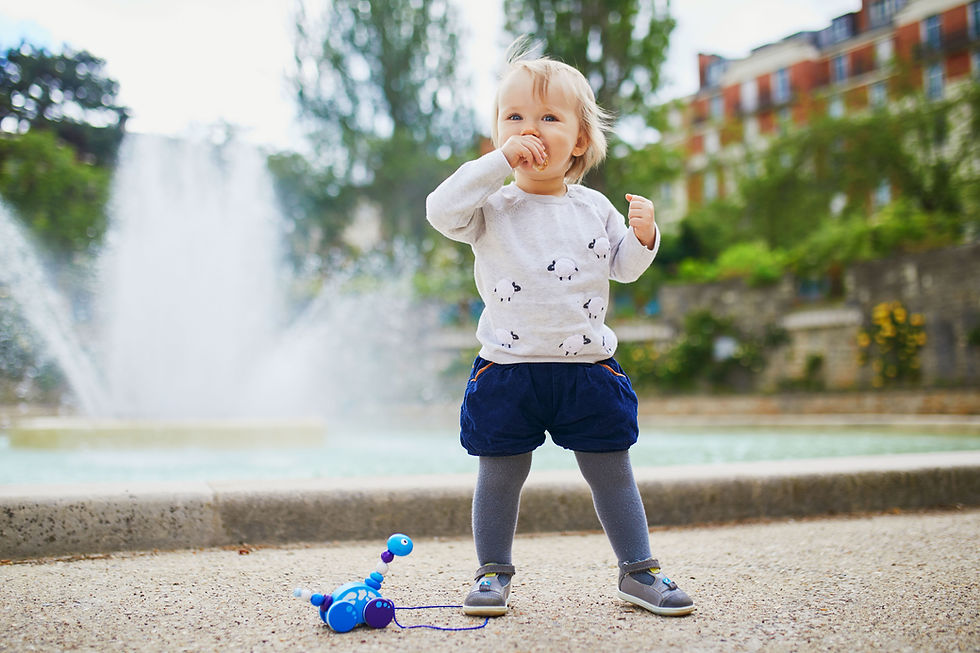How To Be a Calmer Parent
- Emma Christmas

- Sep 29, 2025
- 3 min read
Updated: Oct 10, 2025
Do you find yourself snapping at your child and instantly regretting it? Or when they finally go to bed, do you feel guilty that you weren’t the calm, patient parent you hoped to be? You are not alone. But you might also be being far too hard on yourself.
It’s human nature to feel triggered sometimes - especially if you’re stressed, tired or your children are being… well, children.
Becoming a calmer parent isn’t about being perfect. It’s about learning why these reactions happen, understanding yourself better and finding ways to respond differently when big emotions show up.

Why Becoming a Calmer Parent Is So Hard
Parenting is one of the most rewarding roles in life - but it’s also one of the hardest. Children test boundaries, express big emotions and often catch us at the exact moment we’re least resourced to handle it.
When we react by snapping or raising our voice, we often think we’ve 'failed'. But the truth is, these responses are part of being human. They’re not signs that you’re a bad parent - they’re signals from your nervous system that you’re under stress.
Remember: even the most mindful, intentional parents lose their cool sometimes. Heck I am a teacher with actual training in how to stay calm, and I still feel triggered by my own children. But, the goal is not perfection but progress toward becoming a calmer parent more of the time.
The Role of the Nervous System in Parenting Reactions
Here’s what’s really happening inside your body:
Your subconscious is constantly scanning for safety.
When it perceives a threat - even something as small as your toddler screaming about the 'wrong' colour cup - it activates your stress response.
Your body reacts before your conscious brain has time to catch up.
That’s why those sharp words or sighs slip out before you even realise it.
Understanding this is the first step to becoming a calmer parent. Instead of blaming yourself, you can see your reactions as signals - not failures.
Why Quick Fixes Don’t Always Work
You’ve probably heard advice like ‘just take a deep breath’ or ‘count to ten’. While these can help in the moment, they don’t always work if your nervous system doesn’t feel safe.
It’s not about being afraid of your child. It’s about how overwhelming their emotions can feel to your body when you’re already running on empty.
To become a calmer parent, you need more than quick fixes. You need to build awareness of your triggers, expand your ‘window of tolerance’ and create a toolbox of strategies that actually work for you.
What It Really Means to Be a Calmer Parent
Being a calmer parent doesn’t mean you never get upset. It means:
You recover more quickly when you do lose your cool.
You understand your own patterns and what sets you off.
You have tools to regulate your emotions and stay present with your child.
You can show compassion to yourself, instead of guilt or shame, when things don’t go perfectly.
This kind of calm is not about suppressing your feelings - it’s about responding rather than reacting.
How The Parent Hub Helps Parents Find Calm and Confidence
Inside the Hub, I teach parents practical tools for staying inside their window of tolerance, as well as how our subconscious and childhood experiences impact the way we parent today. The Hub is not about judgement, shame or unrealistic expectations. It’s a supportive space where parents can learn, grow and practice becoming the calmer parent they want to be. Because at the end of the day, calmer parenting isn’t just better for your child - it’s better for you, too.
Hi, I’m Emma, Early Childhood Expert and founder of Everyday. My goal is simple: help parents understand their children better, so connection deepens, guidance becomes clearer and every stage feels a little brighter. Because at the end of the day, it’s not about the extraordinary - it’s about the everyday.






Comments